Palestinian Unity: Goal or Mantra?
By RAMZY BAROUD
Arab League Secretary-General Amr Moussa used exceptionally tough language during a Cairo news conference 9 September, when he lashed out at Palestinian factionalism, saying that the League is going as far as studying the possibility of imposing sanctions on quarrelling Palestinians.
"I am extremely angry with the Palestinian organisations… We are studying the measures to be taken in the face of the current Palestinian chaos," he said, after a meeting of Arab foreign ministers. He added, "the sanctions would not be against anyone in particular. They would be against the party which obstructs reconciliation and maybe against everyone or against the organisation which obstructs Egyptian efforts."
Considering Moussa’s devoted efforts in the past aimed at solidifying a Palestinian front and generating a semblance of a Arab unity in its support, one can only sympathise with the head of the League’s frustration and indeed "extreme anger".
Palestinian disunity, and political — if not, geopolitical — fragmentation is eroding the Palestinian cause more than all Israeli efforts, walls and military incursions combined. The painful-to-watch televised bickering between representatives of various Palestinian factions has led to confusion among traditionally pro-Palestinian groups worldwide. The political objectives — once agreed upon as "constants" — and symbols that once united Palestinians everywhere are now wide open for extreme interpretation.
In fact, "respecting the sanctity of Palestinian blood", which for long served as the lowest possible denominator agreed on by every Palestinian grouping, has been violated many times in recent months and years; too many times to count. Repeating the slogan is, at this point, an empty mantra, joining the numerous other mantras that have for long served as a sedative for the hapless masses, whether Arabs, Palestinians or both.
That said, a reality check is also in order. It might be easy for the Arab League to pass a measure or two to sanction Palestinian groups who might be perceived as the ones jeopardising the Cairo talks, whether the ones underway or the larger gatherings scheduled for October. Not even Palestinians would dare criticise the League for practising some brotherly tough love for the sake of the cause of Palestine, which is supposedly the main overriding priority for every Arab state — another mantra. Nonetheless, it is incumbent on the Arab League, as it mulls over the issue of sanctions, to consider the role that some of its own members have played in instigating Palestinian infighting.
Following Hamas’s majority victory in Legislative Council elections in January 2006, Arab countries could have congratulated the winner, promised cooperation and urged unity among rivals. Instead, some chose to do the exact opposite, ostracising Hamas from their meetings and conferences, playing favourites and smoothing the way for US-led international sanctions that have devastated Palestinian society in Gaza, leading to utter desperation and strife.
Moreover, some of those countries found it appropriate to train Palestinian fighters loyal to the Fatah faction in preparation for combat not against Israel but against their own Palestinian brethren in Gaza and the West Bank. The funds for such camps were, of course, provided courtesy of Uncle Sam, and some of the weapons were widely reportedly to have been channelled through Israel.
As for the embargo that has turned an already desperate Gaza into a secure open-air prison, with medicine being smuggled through tunnels and malnutrition wreaking havoc among the young and old, it would have not succeeded if Israel were the only gatekeeper. Unfortunately, the fact that Egypt has sealed its borders to Palestinians in Gaza made the punishment complete.
Secretary-General Moussa perhaps enjoys more respect among Palestinians than some of their own leaders, but the truth must be told, especially since has he had the courage to open the door of candour and honesty. "Do they [the Palestinians] have a state for them to be fighting over [for] ministerial positions? We kidded ourselves and called it the state of Palestine. It’s not a state until it obtains its full rights."
He cannot possibly be anymore accurate. Palestinians are nowhere near the process of state building and they should remain a national liberation movement until freedom is attained. But equally we also kid ourselves when we place our full trust in the Arab League, which is merely a reflection of the wishes of its members with records that are morally porous themselves.
What is the point of lending the Egypt talks complete trust if some parties receive their pointers from Washington and brazenly consult with their "peace partners" in Tel Aviv? It makes good sense for those who are not on Washington’s payroll — but on its "terror list" — to be immensely wary and constantly alarmed.
On the other hand, one cannot completely override the possibility that Hamas is in consultation with, and maybe to a degree influenced by, Iran. But let’s be realistic for a moment. What is Hamas’s political leverage amid reconciliation talks given the level of political and financial validation and backing that its main rival enjoys? Very little, indeed, aside from its ability to hold on to the impoverished Gaza Strip and with a lonely Israeli soldier in its custody. Iran stepped up its support of Hamas and the latter is willing to accept the support of Micronesia if that latter is willing to offer it.
True, Palestinian unity is a must and is a prerequisite to any meaningful, large scale Palestinian strategy aimed at ending the Israeli occupation. But the term must be appreciated, qualified and its practical meaning understood fully before it too turns into another cheap Arab mantra, inscribed on many street corners, but no longer meaning anything.
-Ramzy Baroud (www.ramzybaroud.net) is an author and editor of PalestineChronicle.com. His work has been published in many newspapers and journals worldwide. His latest book is The Second Palestinian Intifada: A Chronicle of a People’s Struggle (Pluto Press, London).

















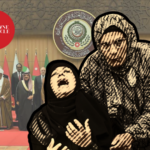
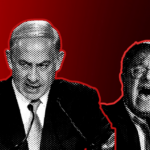
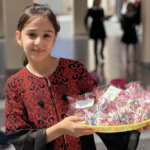
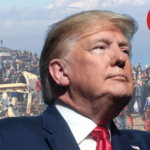
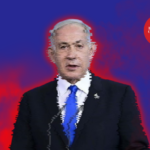
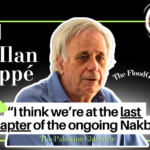
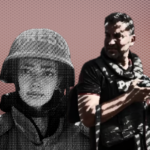
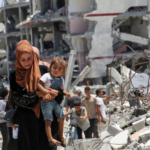










0 Comments